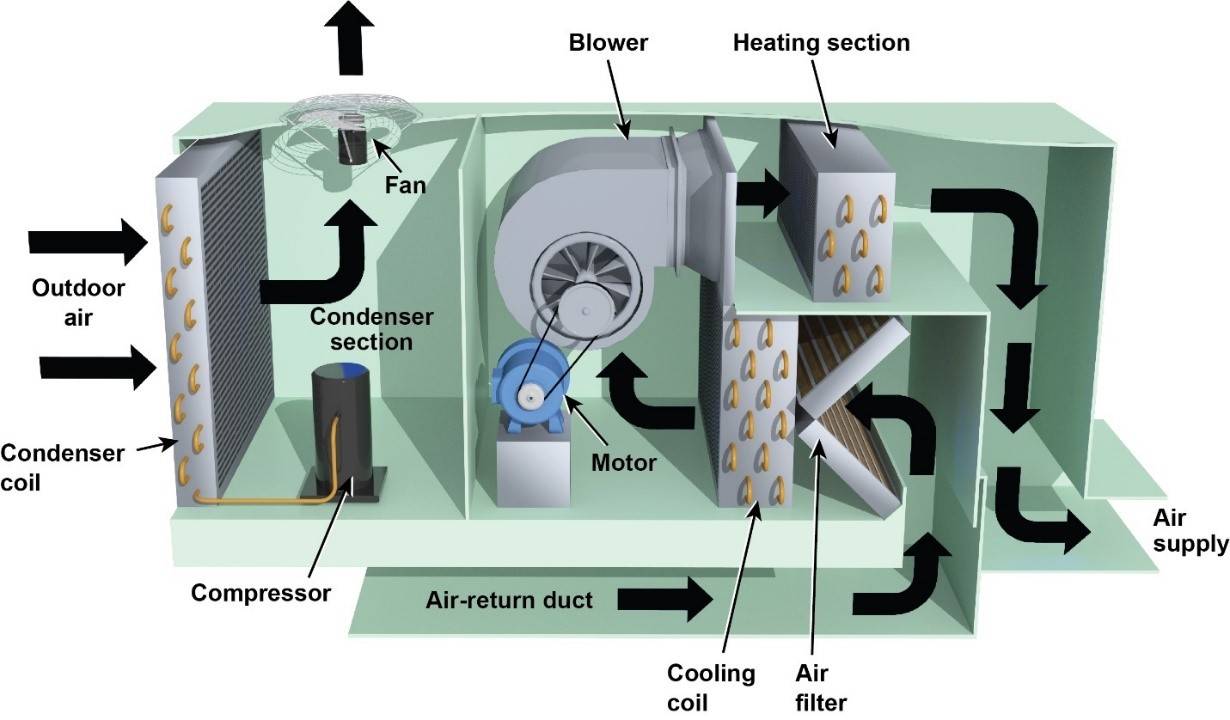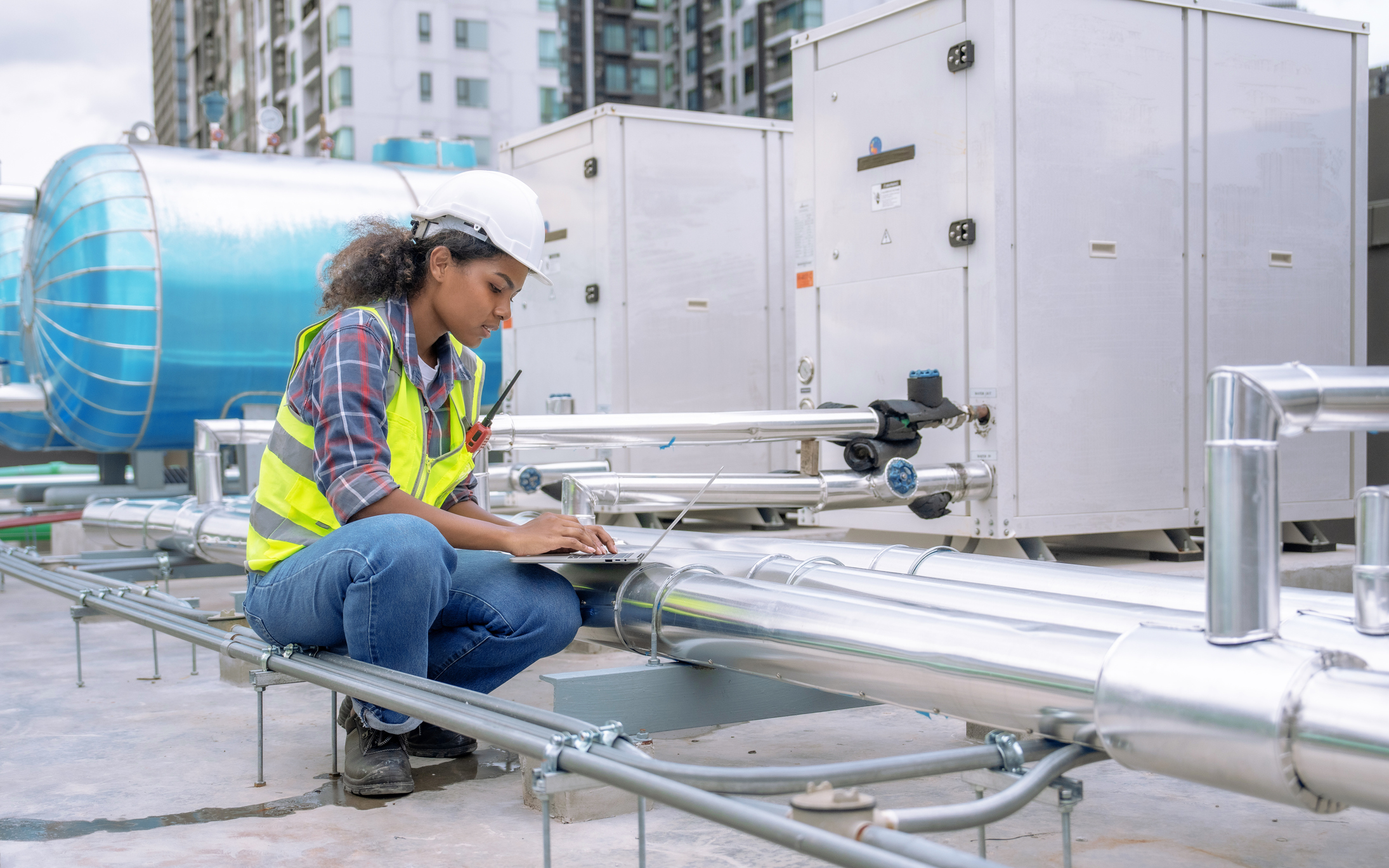An In-Depth Take A Look At Heating And Cooling Solutions and Their Influence On Energy Performance and Expense Savings
The duty of a/c services in improving energy efficiency and achieving cost financial savings is more critical than ever before, as organizations and property owners look for sustainable services in a progressively eco-conscious globe. With technical innovations like clever thermostats and high-efficiency elements, the potential for enhancing system performance is vast. Yet, truth influence of these innovations depends mostly on routine upkeep and proactive concern management. As we check out the detailed partnership in between HVAC systems and functional expenses, including the change towards ecologically pleasant alternatives, the question develops: how can these techniques be efficiently carried out to optimize both financial and eco-friendly benefits?

Importance of Heating And Cooling Equipments
HVAC systems are a vital element of contemporary structures, playing a crucial role in keeping comfy and healthy and balanced indoor settings. These systems, encompassing air flow, heating, and air conditioning, are essential for regulating temperature level, moisture, and air top quality, thereby ensuring the health of passengers. Effective HVAC systems contribute dramatically to producing an optimum interior environment, which is crucial for both business and residential rooms.
In industrial structures, HVAC systems are essential to giving a safe and effective environment. By managing indoor environment conditions, these systems aid protect against the development of mold and mildew and the spread of air-borne impurities, thus guarding the wellness of employees and clients. Additionally, in property settings, heating and cooling systems enhance living problems by providing constant thermal comfort and improving indoor air high quality, which is essential for general wellness.
In addition, the layout and maintenance of cooling and heating systems have a straight effect on energy intake and operational prices. Effectively made and maintained systems can substantially decrease energy use, bring about reduced energy bills and a smaller sized carbon impact. The effectiveness of these systems thus plays an important role in promoting sustainability and power preservation within buildings, highlighting their importance in the modern building landscape.
Developments in A/c Modern Technology
Advancement in cooling and heating technology is reinventing the means structures manage interior environments, ushering in a new age of effectiveness and control. Current innovations have actually concentrated on enhancing power consumption while enhancing customer convenience. One noteworthy development is the assimilation of smart thermostats, which make use of expert system to find out occupancy patterns and readjust temperature levels as necessary, lowering unnecessary power usage.
Variable Cooling Agent Flow (VRF) systems stand for another considerable leap onward. These systems permit exact temperature control in different areas of a building, improving comfort and reducing energy waste. VRF technology is especially beneficial for huge industrial areas, providing flexibility and scalability.
In addition, the arrival of Net of Things (IoT) tools has transformed a/c systems right into interconnected networks efficient in real-time information collection and evaluation. This connection allows predictive upkeep, guaranteeing systems run at peak performance and decreasing unexpected downtime.
Additionally, innovations in materials and layout, such as using high-efficiency coils and compressors, have enhanced general system performance - Heating Contractor. The adoption of eco pleasant cooling agents also emphasizes the sector's dedication to sustainability
These technical developments are essential in reducing functional expenses and environmental influence, setting brand-new standards for developing environment monitoring.
HVAC Maintenance and Performance
Making sure optimal efficiency of heating and cooling systems expands beyond technical improvements; it additionally depends upon efficient maintenance practices. Regular upkeep is crucial for maintaining effectiveness, lowering power usage, and extending the life period of cooling and heating systems. The key goal is to guarantee that all components work at their peak potential, thus reducing power wastage and maintaining consistent indoor convenience degrees.
Routine maintenance tasks, such as cleaning or replacing air filters, examining refrigerant degrees, and evaluating ductwork for leakages, are crucial for preventing unnecessary strain on the system. Unclean or blocked filters can block air movement, triggering the system to function more challenging and consume more power. Also, inadequate cooling agent degrees can decrease cooling effectiveness, resulting in higher operational costs.
Additionally, regular inspections by certified experts check over here can determine potential issues prior to they rise right into costly repair work or system failures. These examinations frequently consist of examining electric links, adjusting thermostats, and ensuring the total stability of the HVAC system. By attending to small issues early, services and homeowners can prevent unanticipated failures and enhance energy effectiveness.
Cost-efficient HVAC Solutions
For those seeking to get the most out of their home heating, air flow, and air conditioning systems without damaging the financial institution, discovering affordable cooling and heating solutions can make a considerable distinction. One immediate action is to invest in programmable thermostats, which enable individuals to establish particular temperatures for various times of the day, maximizing power use and decreasing unneeded consumption. By automating temperature changes, home owners can achieve considerable cost savings on power costs.
Routine upkeep is one more important element of cost-effective HVAC administration. Making certain that filters are cleaned or changed regularly, ductwork is secured, and devices are serviced by experts can protect against pricey repair services and improve system long life. Preventive maintenance not just preserves system effectiveness but likewise aids in staying clear of unforeseen malfunctions that can cause costly emergency repairs.
Furthermore, retrofitting existing systems with energy-efficient parts, such as variable rate motors or high-efficiency compressors, can be a prudent investment. These upgrades boost operational effectiveness, minimize power usage, and can frequently be applied at a portion of the price of a complete system replacement.
Ecological Effect Reduction
Reducing the ecological effect of A/c systems is critical in today's quest of lasting living. Heating and cooling systems are considerable factors to power consumption, accounting for virtually 40% of energy usage in business structures.
Technical improvements in a/c style and operation, including the combination of smart thermostats and energy-efficient heatpump, are crucial in decreasing carbon footprints. These innovations permit maximized energy usage, decreasing wastage and improving total system performance. Furthermore, adopting regular upkeep techniques guarantees a/c systems run at peak effectiveness, additional curtailing unnecessary energy intake.
Additionally, the use of eco-friendly cooling agents is critical, as standard cooling agents, like CFCs and HCFCs, have actually been terminated as a result of their ozone-depleting properties. Modern choices, such as hydrofluoroolefins (HFOs), offer lowered ecological threats, aligning with international ecological procedures. By accepting these lasting techniques, HVAC services can play a transformative role in reducing environmental influences, advertising energy efficiency, and promoting an extra sustainable future.
Conclusion

In addition, the style and maintenance of HVAC systems have a straight impact on you could try this out power intake and operational costs. Routine maintenance is essential for maintaining effectiveness, decreasing power intake, and extending the life period of HVAC systems. HVAC systems are significant contributors to energy consumption, accounting for almost 40% of energy go now use in commercial structures. Furthermore, adopting regular upkeep techniques guarantees Heating and cooling systems operate at peak effectiveness, additional curtailing unnecessary energy usage.
The change to environmentally pleasant Cooling and heating systems further promotes and reduces operational prices sustainability. (Heating Contractor)